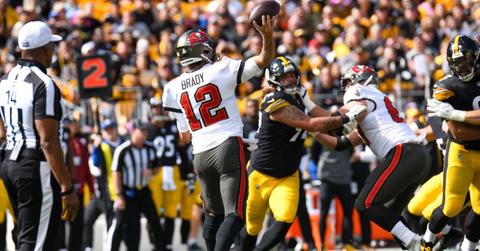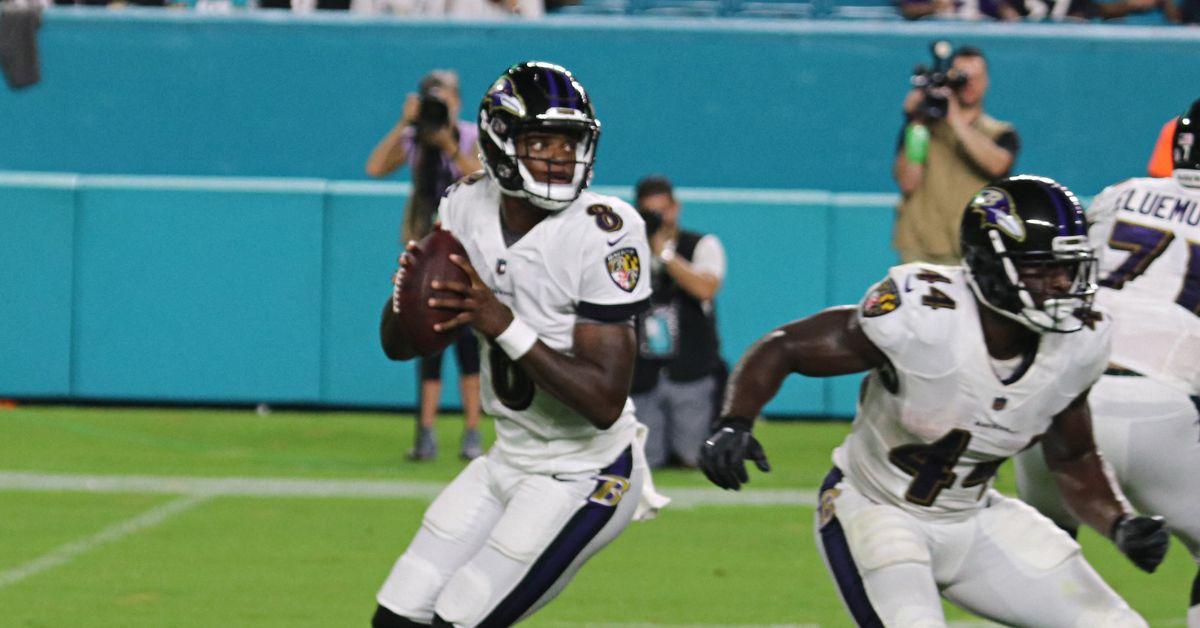Most NFL Quarterbacks Say "White 80" as Part of Their Cadence, but What Does It Mean?
The cadence is a crucial part of NFL offenses.
Published Jan. 16 2025, 3:45 p.m. ET

If you tried to explain American football to an alien, it would likely take you several days. Few sports are more laden with strange rules and rituals, but in spite of all of those, football has risen to become the most dominant sport in the country.
Among the strange things that happen during an NFL game is a quarterbacks' cadence, which is basically the string of words they yell out before the ball gets snapped. If you've watched a lot of football, you may have noticed that many quarterbacks say "White 80" near the end of their string of nonsense, which has led some to wonder what that means. Here's what we know.

Why do quarterbacks say White 80?
Quarterbacks say White 80 as part of their cadence. Cadences are necessary in football because you have to signal to your 10 teammates when to move. If a player moves early, that's a penalty, which is why understanding cadence is so crucial.
White 80 is one of the things many quarterbacks have learned to say to signal to the center and the rest of the team that the ball is ready to be snapped.
It's unclear why White 80 is the phrase that so many quarterbacks have landed on, but you may have heard other quarterbacks say things like "Omaha" or "Blue 32" before the ball gets snapped. Each one of these phrases serve the same purpose, and the only important thing is that the quarterback and the rest of his team are on the same page about when the ball is going to be released, and therefore when the play is going to start.
Timing is everything in NFL offenses.
When a snap is mishandled or the timing goes wrong, that can lead to costly mistakes in an NFL game. During the wild card game between the Tampa Bay Buccaneers and the Washington Commanders, it was timing issues that ultimately led quarterback Baker Mayfield to fumble the ball when it looked like the Buccaneers were going to be able to seal their victory.
That issue was likely a result of the rookie center misunderstanding his quarterback's cadence and snapping the ball too early. As a result, the play cannot be run as it was designed, and the quarterback has to adapt to new circumstances in real time. Sometimes, broken plays can result in big gains. More often, though, they lead to a fumble or sack because the offense isn't able to recover from the mistake.
The words themselves don't necessarily have to mean anything. What's more important is the rhythm of the delivery, which tells the center and the rest of the offense almost exactly when the ball is going to be snapped. These audio cues mean that the team doesn't have to be looking at the quarterback during the plays. Instead, they can simply run their routes or blocking schemes, knowing that the ball got delivered when it was supposed to.